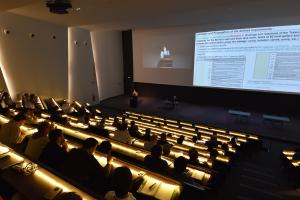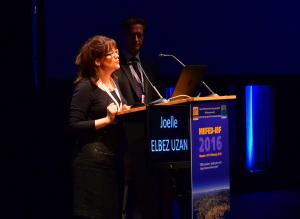How would you define "safety culture"?
Safety culture is about ownership, on both a collective and individual basis, of the objectives defined by safety regulations. It consists in developing a questioning, constructive and I would say "pro-active" attitude towards any issue that is safety-related.
Once this approach is adopted, safety ceases to be perceived as a constraint and it becomes embedded in our day-to-day attitudes and actions.
Beginning in 2013, you have organized safety workshops for ITER staff, Domestic Agency personnel and contractors. Is it because the ITER Project lacks a safety culture?
ITER is the first fusion project that falls under nuclear safety regulations. If one excepts
JET and TFTR, which briefly and successfully experimented with a deuterium-tritium mix in the 1990s, no fusion installation has ever had to deal with a significant inventory of nuclear fuel or with the activation that neutrons generate in plasma-facing components.
For scientists and engineers who come from research labs and tokamaks, this is a new situation—one we need to explain in terms of both regulations and attitude.
It is part of our job in the Nuclear Safety Division to provide not only the basic safety knowledge but also the philosophy on how safety should be approached.
The key word here is pragmatism: we need to proceed in a very practical manner, with concrete examples drawn from experience. We need to provide the 'keys' that will help unlock situations and solve problems, and this is precisely what the workshops are about.
The strong workshop attendance, always on a voluntary basis, is proof that there's now a widespread understanding of what is at stake in fostering a strong safety culture within ITER—and what is at stake is no less than the project's success.



